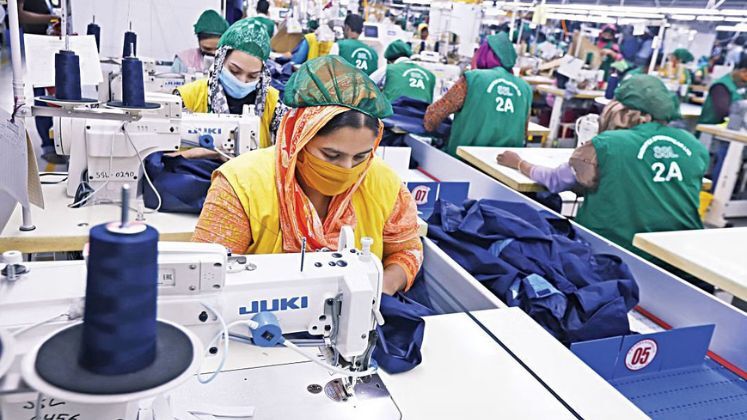
Saidpur, the commercial hub of Nilphamari district, is facing a severe downturn after exports of ready-made garments, mainly produced from jhut (scrap fabric), dropped by nearly 50%. The decline follows India’s recent ban on the import of seven categories of goods, including garments, through land ports, according to the Exportable Small Garments Owners Association (ESGOA) in Saidpur.
Local traders said exporting by sea has become prohibitively expensive, with transport costs tripling and shipments now taking 20 to 25 days. Goods that were previously routed through Benapole, Sonamasjid, and Sonahat land ports must now go by sea, raising costs from Taka 20,000 to Taka 60,000 for the same volume. Many exporters are continuing operations only by bearing heavy subsidies to maintain their presence in international markets.
Industry representatives noted that Saidpur’s jhut garment sector is experiencing an unprecedented slowdown. Entrepreneurs source scrap fabric from factories in Dhaka and Chattogram to sustain year-round production, with almost every household in the upazila engaged in small-scale garment workshops using between two and 45 machines. The industry supports at least 500 families and supplies trousers, shorts, jackets, jeans, and T-shirts to domestic and regional markets. India, Nepal, and Bhutan have traditionally been the main destinations.
The National Board of Revenue reported that India imports nearly 70 million US dollars’ worth of Bangladeshi garments annually, 93% of which previously moved through land ports. With that route now closed, production in Saidpur has slowed sharply, threatening livelihoods across the region.
Arshad Amir Pappu, vice president of the Saidpur Small Garments Owners’ Association, said hundreds of small factories were now at risk. He added that without urgent intervention from both Governments, Saidpur’s economy could come to a halt.






